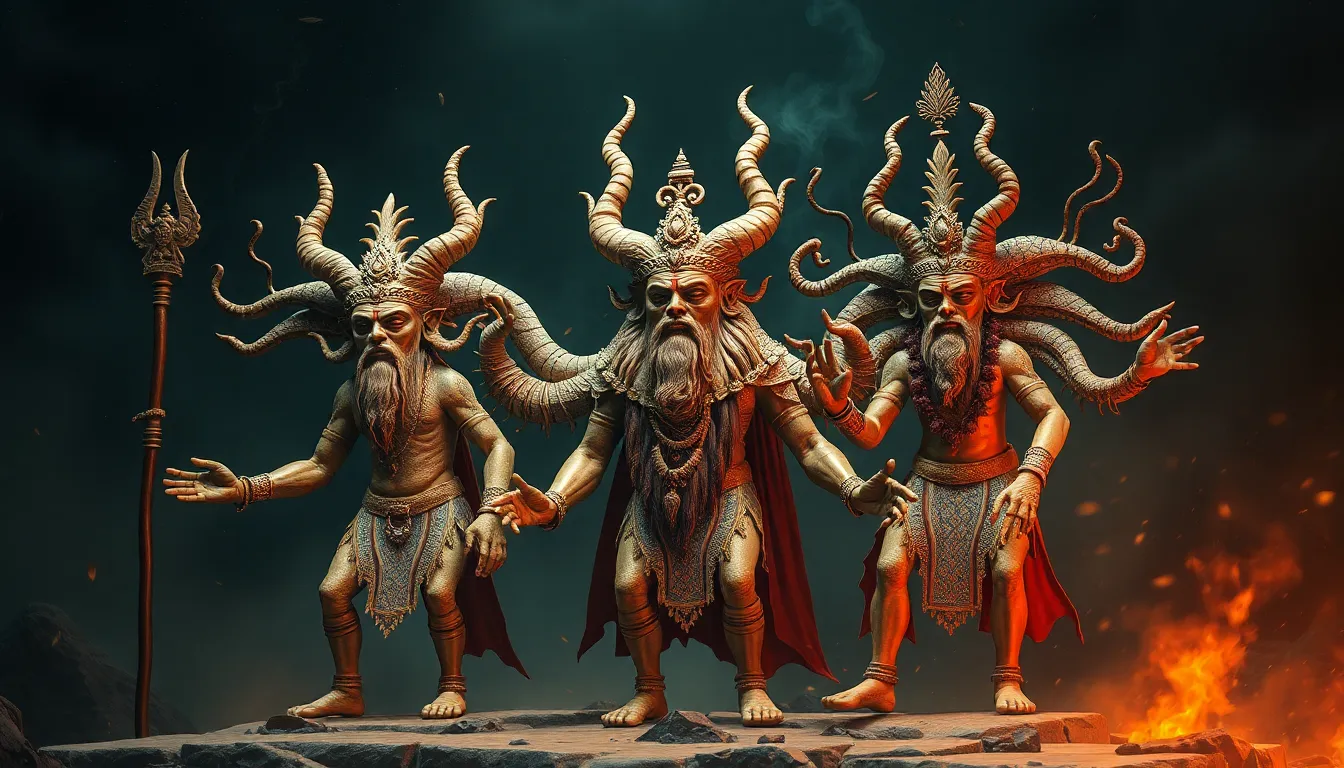The Flood and the Ark: Myths of Survival from Around the World
Introduction to Flood Myths
Flood myths are a fascinating aspect of cultural storytelling that span across diverse civilizations around the globe. These narratives often share a common thread of survival in the face of catastrophic deluge, highlighting themes of divine intervention, rebirth, and moral lessons. The significance of these myths lies not only in their narrative structure but also in what they reveal about humanity’s relationship with nature and the cosmos.
As we explore various flood myths, we discover that they often serve to explain a society’s origins, the moral implications of human behavior, and the connection to the divine. They are a testament to the resilience of the human spirit, as well as a reminder of the potential for destruction that nature holds.
The Biblical Account: Noah’s Ark
One of the most well-known flood narratives is found in the Book of Genesis, which recounts the story of Noah and the Great Flood. According to the biblical account, God decided to cleanse the earth of its wickedness by sending a great flood, but chose Noah, a righteous man, to survive.
Noah was instructed to build an ark, a large vessel designed to house his family and pairs of every animal species. The ark symbolizes salvation, a refuge from the impending destruction. After the floodwaters receded, God established a covenant with Noah, signified by a rainbow, promising never to destroy the earth by flood again.
Mesopotamian Myths: The Epic of Gilgamesh
Similar themes of survival are present in the Epic of Gilgamesh, one of the oldest known pieces of literature. Within this epic, the character Utnapishtim recounts a flood narrative that bears striking similarities to Noah’s story. Like Noah, Utnapishtim is warned by the god Ea of an impending flood meant to wipe out humanity.
Utnapishtim builds a large boat and saves his family and a selection of animals. The comparison between these two accounts raises intriguing questions about cultural exchange and the universality of flood myths. Both stories serve as cautionary tales about human morality and the consequences of divine displeasure.
Hindu Traditions: Matsya and the Great Deluge
In Hindu mythology, the Matsya avatar of the god Vishnu presents another flood story. According to this tradition, Vishnu took the form of a fish to save the sage Manu and the seeds of all living creatures from a catastrophic flood sent by the gods.
The Matsya myth emphasizes the significance of preserving life and the cyclical nature of creation and destruction. The fish, as a symbol of fertility and abundance, highlights the importance of water in sustaining life, making this story particularly relevant in a civilization deeply connected to agricultural practices.
Indigenous Narratives: The Great Flood in Native American Cultures
Flood stories are also prevalent among Native American cultures, each with unique interpretations and teachings. For example, the Ojibwe tribe tells of a great flood that covered the land, and only a few survived on a floating island. Similarly, the Hopi people recount a flood that cleansed the earth, leading to the emergence of a new world.
- Themes of rebirth: Many Native American flood myths emphasize the idea of starting anew, reflecting a deep relationship with nature.
- Respect for the environment: These stories often convey a message about the need to live in harmony with the earth.
The Greek Myth of Deucalion
In Greek mythology, the story of Deucalion and Pyrrha mirrors the theme of survival and renewal found in other traditions. After Zeus decides to flood the earth to rid it of humanity’s sins, Deucalion, the son of Prometheus, builds a sturdy vessel to endure the deluge.
Once the flood recedes, Deucalion and Pyrrha repopulate the earth by throwing stones behind them, which transform into people. This myth encapsulates themes of purification and the restoration of human life, serving as a reminder of the fragility of civilization.
Asian Flood Myths: The Chinese Legend of Gun-Yu
In Chinese mythology, the story of Gun and his son Yu revolves around the control of flooding and the establishment of civilization. Gun, tasked with controlling the floods, fails in his efforts, leading to his demise. However, his son Yu succeeds in taming the waters by dredging rivers and creating canals, turning disaster into a foundation for society.
This myth emphasizes the importance of human ingenuity and perseverance in the face of natural disasters. It highlights the relationship between humanity and the environment, underscoring the responsibility to manage resources wisely.
African Flood Myths: The Tale of Ngai and the Great Flood
African cultures also possess rich flood narratives, such as the story from the Kikuyu people of Kenya. In their myth, Ngai, the creator god, sends a flood to cleanse the earth of evil. A selected few survive, emphasizing the themes of divine selection and moral righteousness.
- Creation and survival: These stories often explore the interplay between creation and destruction, highlighting cultural identity.
- Community and continuity: Survival often hinges on communal bonds and shared values.
Comparative Analysis of Flood Myths
Across cultures, flood myths reveal several common themes that resonate with the human experience:
- Divine warning: Many stories feature a warning from a deity, signaling the importance of heeding moral lessons.
- Chosen survivors: A recurring motif is the selection of a few individuals who embody righteousness or wisdom.
- Rebirth and renewal: The aftermath of the flood often signals a new beginning, emphasizing resilience and hope.
These myths serve not only as entertaining tales but also as reflections of societal values, psychological insights, and the collective consciousness of humanity.
Conclusion: The Enduring Legacy of Flood Myths
As we reflect on the myriad flood myths from around the world, we see their enduring legacy in shaping cultural narratives and moral frameworks. These stories remind us of the resilience of the human spirit in the face of adversity and the need to respect and coexist with nature.
In contemporary discussions surrounding climate change and environmental ethics, flood myths resonate with urgency. They challenge us to reconsider our relationship with the earth and inspire us to seek sustainable solutions that honor the lessons of our ancestors. The myths of the flood and the ark continue to echo through time, urging us to preserve life and nurture our planet.




